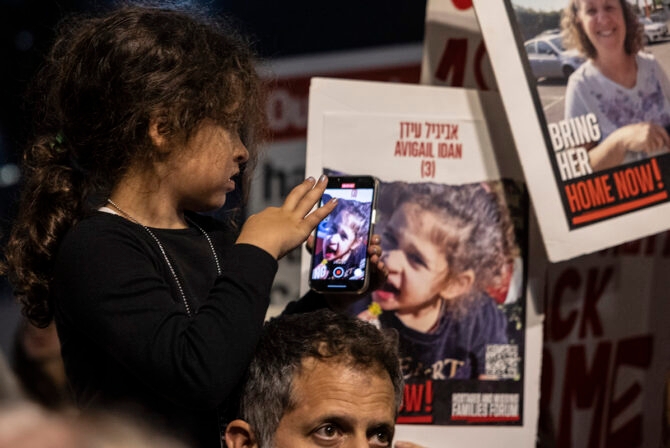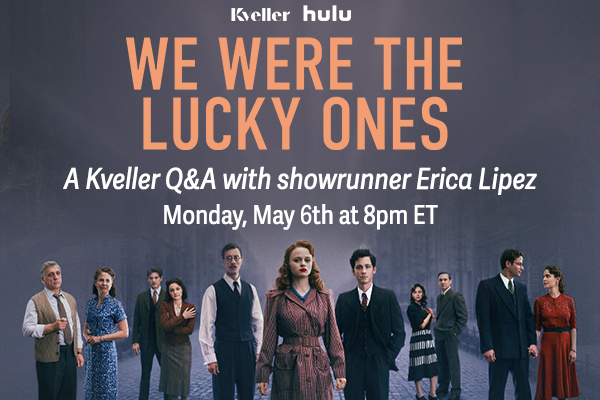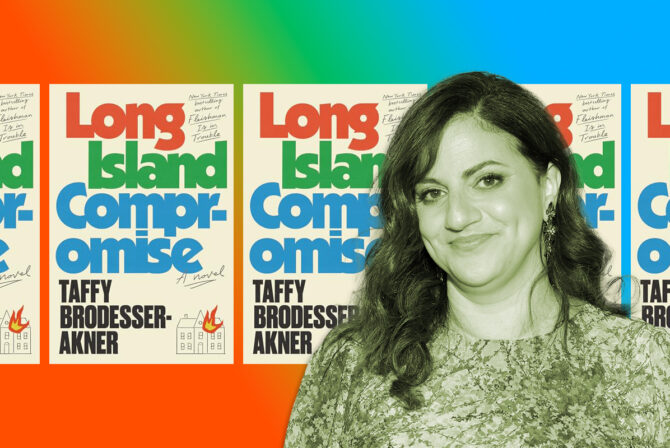I had my oldest son a few months before I turned 30. Not young in the majority of the world. Not even particularly young in the United States. On the Upper West Side of New York, however, when I asked my doctor if, at 36, I was too old to think about having a third child, he told me, “Most of my patients your age are still thinking about thinking about having their first baby.”
The thing is, even though I gave birth to my first child in 1999, I’d already been raising one for about two decades prior to that. My brother.
Eight years younger than me, he was born six months after my family immigrated to the United States from the Soviet Union. My parents had a lot to do, what with the whole settling in another country, learning English, looking for a job, trying to survive thing. So my brother became my responsibility. I took him for walks around the block in his baby carriage. I took him to the bathroom. On his first day of preschool, I stayed with him in the classroom to help him adjust. I taught him to tie his shoes. I bought him his first baseball glove because I knew he’d need it to fit in with the other, American boys at kindergarten. I regularly went to his parent/teacher conferences (most were cool with it; but one flat out refused to speak to me, even though I tried to explain I’d been doing this for years now. I was 12). And when, down the line, he became a competitive ice skater, I drove him to practice at dawn and dealt with his coaches and was his official chaperone at out-of-town competitions.
To me, it seemed normal. Most of the kids I grew up around, also Soviet immigrants with younger siblings born in the US, understood that the answer to “Am I my brother’s keeper?” was “Yes, you are. So anything he does wrong is your fault.”
To this day, when someone compliments my mother about my brother, her response is, “Tell Alina. He’s her child.”
Conversely, when my mother wants to know what my brother is thinking, she doesn’t ask him. She asks me.
The practice has a name, apparently. I learned it in
The Sibling Effect
, the book I reviewed here last summer. It’s called alloparenting, and it’s rather common around the world. Except in the West.

When nice, normal Americans saw how much of my brother’s upbringing I shouldered, they assumed our parents were dead. Our parents weren’t dead. They were just outsourcing before it became a thing.
Did I resent the burden? Sometimes. Being my brother’s keeper also meant being his disciplinarian. When he mouthed off like any preteen would, it was at me. When he threw a science book because he was frustrated with his homework assignment, it was at me. When he screwed up, it was all on me.
My own children don’t alloparent to quite the same extent that I did. There’s simply less need of it. My husband and I aren’t struggling immigrants attempting to navigate a foreign culture, and we deliberately quit our corporate jobs a few years ago in order to spend more time with the kids.
But they still have responsibilities other parents believe are excessive. My 13-year-old has been taking his brother to school on the city bus every morning since the now 9-year-old was in kindergarten. He babysits both his siblings when we go out. He’s taken them to extracurricular activities and picked them up when I’m not able to. My 9-year-old, on the other hand, is in charge of reading to his 6-year-old sister and, when they wake up early on Saturday and Sunday mornings, of getting her milk, cereal, maybe a toaster waffle and, most importantly, keeping her quiet and entertained while the rest of us sleep in. If she wakes us up, it’s his fault. Because he’s older.
Does alloparenting make my life easier? Yes, it does. And as I’ve said before, I’m all about making my life easier. But, that’s not the only reason I do it. I do it because, despite the inevitable conflicts that sprang up, I am convinced that the reason my brother and I are so close today is because of all the time we spent together on our own as kids. These days, we get along great. He is a doting uncle to my brood and periodically takes them off my hands so they can spend the afternoon in his apartment, watching movies and eating food I’d never get them.
I want my sons and daughter to have the same relationship among themselves when they grow up. My brother is my best friend. We share a frame of reference to the point where one random word can send us both into hysterical laughter while everyone else looks mystified (for instance, the name Chester. And Brad. And the words “Monkey on a tricycle.” I will bet money that, as he reads this, he is laughing right now). We have each other’s backs in a united front against the world and, when necessary, our parents. Those, in my opinion, are good things. Good things worth passing on to my own children. Even if it means that, one day, I won’t understand what they’re laughing so hysterically about, either.
Get the best of Kveller sent directly to your inbox. Sign up for the newsletter here.







